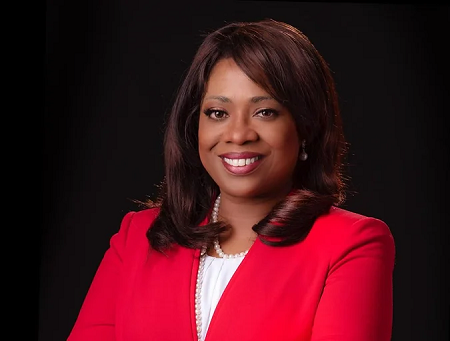Could a black, conservative, evangelical woman be Canada’s next prime minister?
Opinion by J.J. McCullough originally published by the Washington Post
In one sense, Leslyn Lewis, one of four candidates running to lead Canada’s Conservative Party into the next election, is the right woman at the right place at the right time. She arrives at a moment of Tory malaise, with her main rivals, former cabinet ministers Erin O’Toole and Peter MacKay, scorned as uninspiring embodiments of a party establishment that’s too white, male, centrist and secular.
Lewis, by contrast, is black, female, unapologetically Christian and unafraid to embrace sharply ideological causes. She has taken explicit aim at progressive tropes such as “identity politics” and speaks openly of wanting to impose moderate — though still dramatic — “pro-life policies” to rein in Canada’s regime of broadly unregulated abortion.
Slowly but steadily, she has accordingly emerged as a darling to many in the Conservatives’ more right-leaning or socially conservative faction. What was once considered a long-shot candidacy is now enjoying fresh attention from mainstream journalists and winning endorsement from conservative activists desperate for their party to chart a different course.
Speaking to Lewis on the phone last week, however, I found a more complicated woman than some of the rising narratives suggest. She is undeniably a newcomer to Canadian politics, and her depth of knowledge — or even curiosity — about issues is not always obvious. On topics ranging from aboriginal issues (“I think there’s a common belief that the Indian Act has to be modernized”) to police reform (“we need to address some use-of-force training, and dealing with certain marginalized communities”) to the threat of Alberta separatism (“I interpret it right now as a cry for help rather than a battle cry for war”), I found her answers mostly reflecting broad conventional wisdom — either of the mainstream center-right, or on stickier matters, the safe Ottawa consensus.
On the other hand, Lewis overflows with professionalism and ambition, and it would be folly to dismiss her candidacy as unserious or ignorant. She knows what she’s doing and is in it to win it.
Lewis stands apart from her rivals in lacking any prior elected experience (though she did serve briefly as a replacement candidate in 2015). A highly educated corporate lawyer from Toronto, she says she started identifying as a conservative in university but was equally informed by life in Toronto.
“Just growing up in the GTA [Greater Toronto Area], and seeing some of my friends go on the welfare system and be very comfortable on it, even though they came from solid families — I started to question certain things in the system that really act as deterrence to advance,” she explained.
“So I looked at conservative policies, and I saw them as rewarding hard work and creating fair systems where people can achieve.”
Today, she views the rigors of her own professional and personal life as adequate training for the challenges of Conservative leadership and potentially the prime ministership.
“I managed a family while simultaneously going to school and getting my doctorate,” she says, “while also teaching at a university, representing Canadian corporations abroad in multimillion-dollar investments and running my own law firm. At any point in time, a catastrophe can happen in one of those realms — sometimes in all five simultaneously — and I’ve had to deal with it. I haven’t shied away from difficult situations.”
Lewis, however, also lacks a qualification for the prime ministership long considered mandatory by Canada’s political and media establishment: French fluency. At a recent French-language debate she chose to awkwardly read prepared statements with her head down, as her rivals (whose French skills, admittedly, have also been the source of skepticism) spoke spontaneously.
Like most Canadians, Lewis has had little need for French in daily life. And now, in the midst of a short and intense leadership contest, she admits “it’s very hard to carve out time to learn a new, and very difficult language.” She refused temptation to concede defeat, however, fearing it would “send the wrong message to Francophones.”
“I respect them enough to literally go in front of the nation knowing that I couldn’t speak the language.”
Such answers suggest broad familiarity with the way the Canadian political game is played, if not necessarily much interest in second-guessing the rules.
It’s possible to read too much into underdog candidates. Consider that this time last year, many American publications were filled with long, ponderous essays on the presidential candidacy of Marianne Williamson. Since minor candidates tend to be haughtily dismissed by elites, it’s tempting to apply a populist lens and conclude they must represent something critical the party establishment arrogantly ignores.
Lewis’s increasingly high-profile candidacy works well in this regard and can be interpreted as many things — the need for Conservatives to diversify, acknowledge the permanence of their evangelical wing or seek prime-ministerial talent beyond a clique of former cabinet ministers. But it’s equally possible she’s simply an inexperienced politician seeking an unrealistically high office, and the skepticism she has faced in this pursuit is entirely justified.

